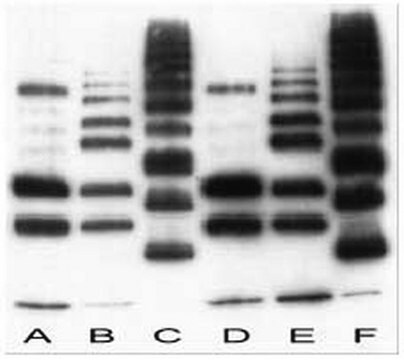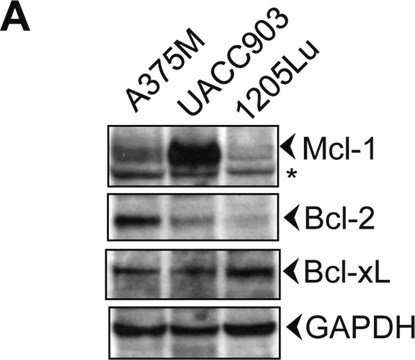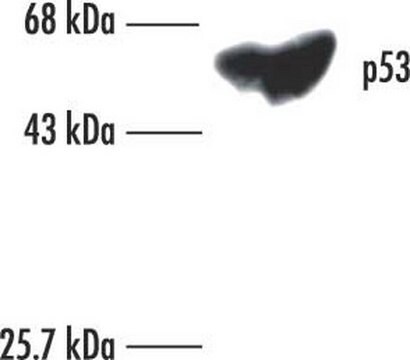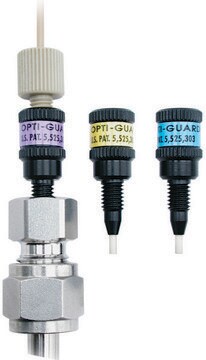05-224
Anti-p53 Antibody, clone BP53-12
clone BP53-12, Upstate®, from mouse
Sinónimos:
Anti-BCC7, Anti-BMFS5, Anti-LFS1, Anti-P53, Anti-TRP53
About This Item
Productos recomendados
biological source
mouse
Quality Level
antibody form
purified immunoglobulin
antibody product type
primary antibodies
clone
BP53-12, monoclonal
species reactivity
human
packaging
antibody small pack of 25 μL
manufacturer/tradename
Upstate®
technique(s)
immunohistochemistry: suitable
immunoprecipitation (IP): suitable
western blot: suitable
isotype
IgG2a
NCBI accession no.
UniProt accession no.
shipped in
dry ice
target post-translational modification
unmodified
Gene Information
human ... TP53(7157)
General description
Specificity
Immunogen
Application
Epigenetics & Nuclear Function
Transcription Factors
Quality
Target description
Linkage
Physical form
Storage and Stability
Analysis Note
Raji cell lysate
Other Notes
Legal Information
Disclaimer
¿No encuentra el producto adecuado?
Pruebe nuestro Herramienta de selección de productos.
Optional
Storage Class
10 - Combustible liquids
wgk_germany
WGK 1
Certificados de análisis (COA)
Busque Certificados de análisis (COA) introduciendo el número de lote del producto. Los números de lote se encuentran en la etiqueta del producto después de las palabras «Lot» o «Batch»
¿Ya tiene este producto?
Encuentre la documentación para los productos que ha comprado recientemente en la Biblioteca de documentos.
Nuestro equipo de científicos tiene experiencia en todas las áreas de investigación: Ciencias de la vida, Ciencia de los materiales, Síntesis química, Cromatografía, Analítica y muchas otras.
Póngase en contacto con el Servicio técnico







